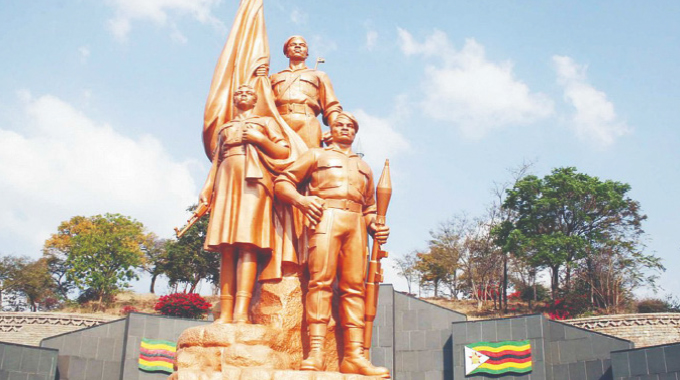COMMENT: There is an urgent need for Africans to tell their history

FOR years, little had been done to immortalise heroes that first waged resistance against the colonialists but the Second Republic led by President Mnangagwa has revisited the issue to immortalise prominent persons and institutions associated with the history of the country.
It is against this background that the Government is finalising the establishment of the Pupu National Monument to serve as a testament to the Ndebele people’s history of resistance and determination in the face of an inevitable wave of colonialism.
These are part of broader efforts to ensure the accurate documentation of the country’s history.
Besides honouring eminent members, Government has reviewed the list of national monuments to include liberation war shrines such as the Pupu Shrine, the 1966 Chinhoyi Battle site and the Kamugoma Massacre site of 1978, in Masvingo among others.
National and Provincial Heroes’ Acres, Assembly Points as well as former detention and restriction centres have also been made national monuments.
Government will also continue to rehabilitate liberation war shrines in neighbouring Mozambique and Zambia.
The move by the Government typifies a popular quote by renowned author, the late Chinua Achebe who said: “Until the story of the hunt is told by the lion, the tale of the hunt will always glorify the hunter.”
The quote raises an urgent need for Africans to tell their history otherwise the story of greatness will always glorify imperialists.
Owning the Zimbabwean liberation narrative not only imparts a sense of self on the present and future generations but also captures the collective aspirations of the nation.
Upon the invasion and occupation of the country by Cecil John Rhodes’ British South Africa Company, a deliberate effort was made by the colonialists to construct a narrative of their triumph, meticulously documenting their supposed domination over the indigenous Africans.
For well over a century, the British colonialists propagated a fabricated account of King Lobengula’s disappearance, obscuring the truth behind their failure to capture the Ndebele King. In reality, King Lobengula did not vanish; instead, his amabutho regiments, led by General Mtshana Khumalo, who was accorded National Hero status under the Second Republic, triumphed over 33 British troopers under the command of Allan Wilson in the Pupu Battle. Every single one of the British troopers met their demise at the hands of the resolute Ndebele warriors.
In an attempt to memorialise the fallen white soldiers, monuments were erected, perpetuating the narrative of their bravery. However, the actuality of their defeat by determined Ndebele amabutho remains inadequately acknowledged within the annals of history.
Pupu Battle took place between December 3 and 4 in 1893, following heavy rains that left Major Wilson’s troops stranded before being attacked by Ndebele warriors.
On Friday, the Minister of Home Affairs and Cultural Heritage, Kazembe Kazembe, visited the Pupu National Monument to assess the progress made by the National Museums and Monuments of Zimbabwe (NMMZ) in its development before President Mnangagwa’s anticipated commissioning of the site in early August.
Officials from the NMMZ guided the minister through the various stages of the monument’s construction, highlighting its role in dispelling the false narratives that have been ingrained in the minds of Zimbabweans regarding the history of the Ndebele people.
Mr Kundishora Chipunza, the chief curator of NMMZ, highlighted that, in the pursuit of accurate historical documentation, it is important to recognise that King Lobengula was never defeated by the colonialists, despite their superior firepower.












Comments